Learning how to walk properly can help you walk longer and farther if you follow some simple rules. The proper walking form allows you to get a good walking stride, whether you are trekking around the neighborhood or going backpacking. You must walk with purpose and use good posture while walking.
Regular exercise is great for the body and it will help you stay fit and lose weight. Want to live longer? Go for a walk! The benefits of walking properly are many, and we will teach you how to properly walk to maximize your fitness routine.
The best part about walking? It is a great low impact exercise that can be done anywhere, at any time! You do not need special equipment in order to walk, unless you desire a treadmill. You do not need a membership to a gym in order to walk. You can do so around your neighborhood, or you can do so while camping, or enjoying the outdoors.
Did you know 80 million Americans call themselves walkers? This form of exercise is great for the young and old alike, and can do wonders for your body!
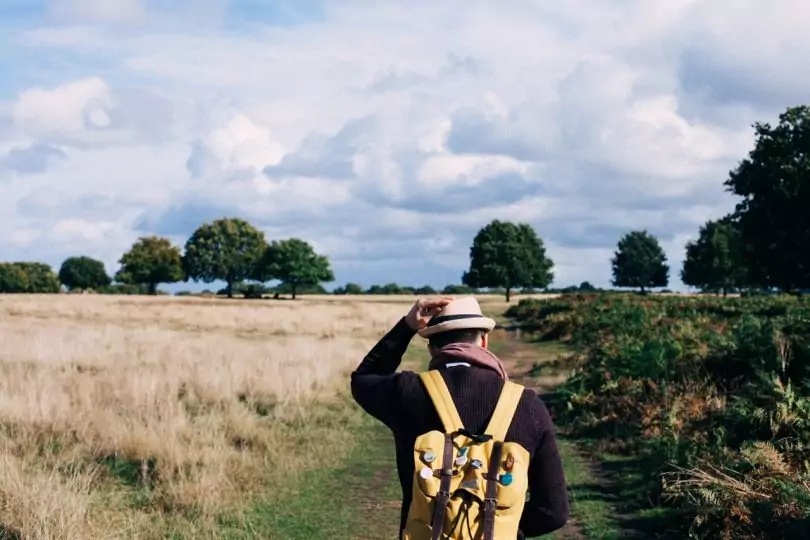
Learning to walk properly for your health, then creating a routine in which to do so, will help you stay active and get in shape. You may find that your body feels better and has less aches and pains! This is due to walking! Now, let us dive into more about learning to walk correctly and how it can help you and your body!
Why Walking Properly is Important
Besides the fact that learning how to walk correctly can help you with your posture, stride, and length of your routine, there are many health benefits your body can reap from just plain walking! You can not only reduce your risk of cancers and heart disease, but your aches, pains, and even stress will lessen over time!
A boost in your mood will be noticeable, and your body will grow stronger, as walking helps to keep your bones and muscles healthy. You may also see a reduction in blood pressure, less troubles with your diabetes, and an overall improvement in your coordination! Really, the positive effects on your body from walking are endless.
Using the proper walking form while walking, which we will explain later, keeps your body in great stride so that your body can reap all of the benefits from walking. Starting a routine can help you stay on track with your fitness, or even aid in preparation of an upcoming backpacking trip. You will always want to be prepared when you are going to be pushing your body to the limits while outdoors.

Starting a Walking Routine in 6 Steps
There are some things to keep in mind when you want to start a new walking routine to help you with staying in shape. Below are some features of starting a routine that you can follow to help you keep your new routine going.
Be sure to stay hydrated on your walks, as you can produce sweat, which is water leaving your body. Staying hydrated keeps your muscles moving, letting you get in some great exercise for yourself. Make it a priority to read our list of the top water bottles for hiking to stay hydrated while on the trail.
| Planning Your Walking Routine | How It Helps You and Your Body |
|
Use the Proper Walking Technique |
Proper walking means keeping your head up, looking forward, with your neck and back relaxed. You will have a bend in your arms as you swing them while walking.
Then, you can tighten your stomach muscles to keep your back straight. Then roll your foot from heel to the toe for proper form. |
|
Correct Gear |
You will need the correct shoes to wear that give you arch support, with a good heel and flexible soles. The soles are important as they absorb the shock and keep you feet cushioned.
If you do night time walking, be sure to include reflective clothing or tape so others can see you. This is for your safety and others. |
|
Picking a Route |
You will want to choose a good route for you to walk, and have an alternative walking course for a bad weather. For example, if you want to walk, but it is raining, consider an indoor walk at a local mall!
When outdoors, stay away from a path that has uneven ground, potholes, cracks and any obstructions, like overhanging trees. Also, steer clear of dangerous areas that are known for crime. |
|
Warming Up |
In order to warm up, you will want to walk slowly for up to 10 minutes to get your body ready for more intense walking. At this point, you are loosening up in order to get more active. |
|
Cooling Down |
This is the opposite of warming up, where you need to cool down your body by walking slowly for up to 10 minutes again. This tells your body to relax. |
|
Stretching Your Body |
After cooling down, you will want to stretch your body’s muscles. You can also stretch before you take a walk, but you still need to warm up initially.
Doing the stretching keeps your body’s muscles from cramping up and aching after you take your walk. |
Using these steps will help you in getting a routine down that you can use indoors or outdoors, wearing the proper gear and appropriately stretching, warming up, and cooling down. Do not skip stretching as this is an important step that could later cause pain if you do skip. This allows your muscles to relax back to normal.

You can do many things to stay motivated about a new routine. Below are a few guidelines to keep you on the path to success with your fitness.
Plan Ahead
Make a small goal and stick to it. Plan to take a walk, about 10 to 15 minutes during your lunch. Then you can shoot for another goal, like walking 20 minutes after you have eaten dinner. Find times that fit your schedule and stick to it.
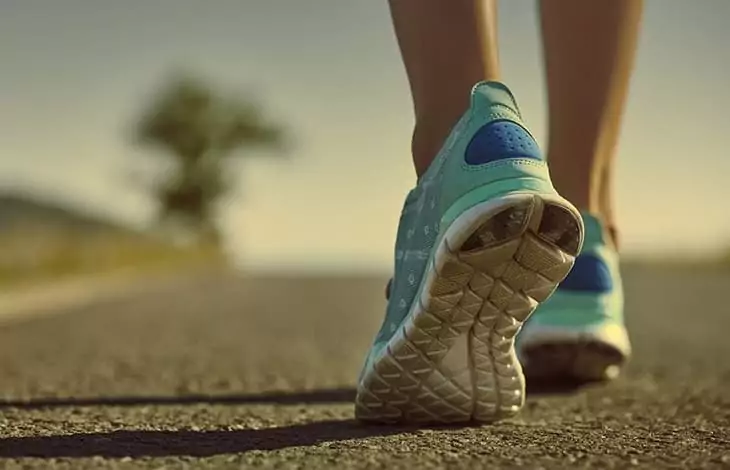
Make It Fun!
If you do not like walking alone, you can find a walking buddy to talk to while you both strive for your goals. You can, instead, bring along your music player to keep you pumped on your route. You can even take your furry friend with you, read our piece on the best dog hiking gear to equip your pet. If you find this does not work, consider joining a gym or club to get fit.

Change It Up!
You do not want to walk the same path all of the time, you can give yourself alternatives. If you are going alone, you should always tell someone your route and when you will be home. Be safe if going alone, and be alert always.
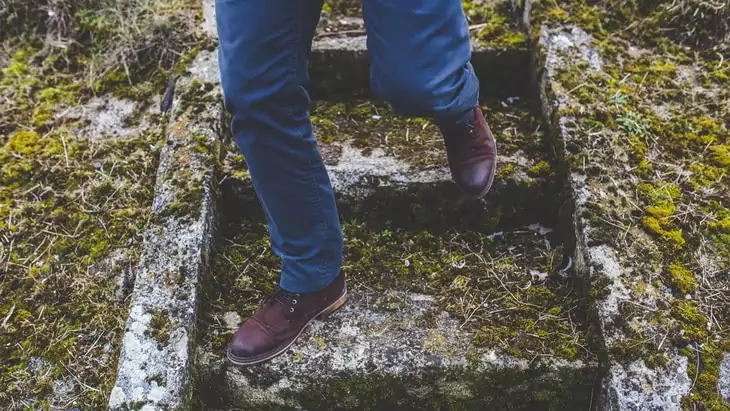
Do Not Be Hard On Yourself
If you miss a day of walking, do not be hard on yourself. You do not have to give up. You can get back on track the next day and remind yourself of your fitness goals. Talk to a friend or family member who can keep you in a positive mind frame.
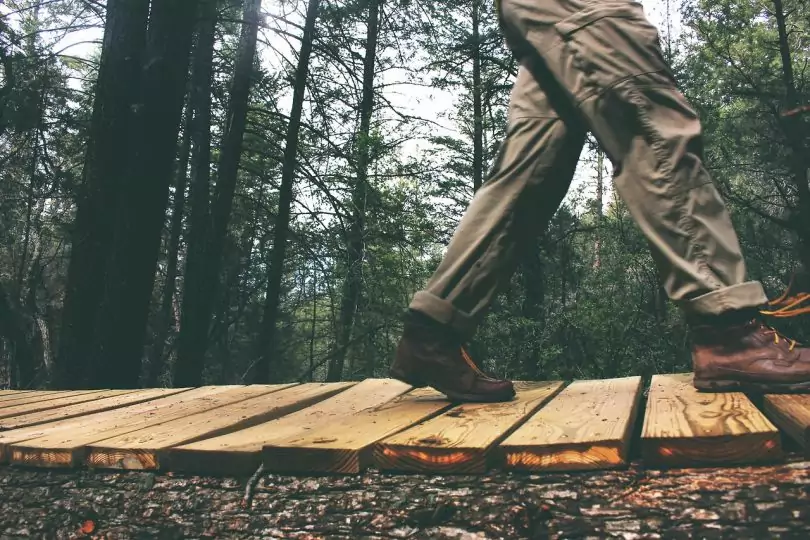
Parts of the Feet
Knowing the parts of the feet can help you when you start a walking routine. Knowing these will help you when learning how to walk properly.
Taking care of your feet is highly important. You can always massage them, use lotions and creams to treat your feet so they feel good after you have walked on them for exercise purposes. If you’re wondering what walking shoes to use, see our article listing the best brands of shoes for hiking.
| Parts of the Feet | Explanation |
|
Toes |
Your toes give your feet stability and spread out the pressure when you are walking. They help you move forward.
Having proper shoes is important because if they are too small, they can cause your feet damage, which then effects your walking. |
|
Metatarsals |
These long bones connect to the toes and can hurt when given too much pressure.
This area feels the most pressure when you are pressing down to step. Proper shoes can help with this as well. |
|
Plantar Fascia |
This is a ligament in your foot that directly connects to your heel and toes. It supports your ache and if overused, can cause inflammation and can hurt when walking. |
|
Flex |
The forefoot and shoe need to bend at the same place, so your shoes need to fit you perfectly. This helps in getting a good gait going and walking with a great stride. |
|
Achilles |
The Achilles is a tendon that connects the calf muscle to the heel. This aids in pushing your feet with your toes so that you can walk, and especially go up hills. |
|
Ligaments |
Each of your feet has more than 100 ligaments. You can strengthen them by going barefoot, or wearing shoes that make you feel barefooted. |
|
Heel |
The heel takes a lot of pressure, and can absorb up to 3 times your body weight. This is known as the largest of the bones in the feet. Taking care of your heels can make your feet feel a lot better after a good walk. |
|
Arches |
Arches help with absorbing shock and giving your feet stability. Using shoes that give you good arch support can ensure you get the most out of your routine walk each time. |
8 Tips on How to Walk Properly
Now, we have come to the most important part, which is the tips on how to properly walk so you can make the most of your exercise routine. Taking these tips to heart can improve your walk, health, and so much more. Here is how!
Tip #1
First, you need to stand tall, with your shoulders back. Your neck and head should align with your spine, and you should pull your abs in a little. This is getting your posture together and it is how you will walk during your daily routine. You want to keep your arms bent and keep your head up high, with a natural move to your shoulders as you walk.
Keep your eyes forward, and do not look toward the ground. Remember, to walk with a purpose in your stride. That purpose is getting your body healthy and strong.

Tip #2
Secondly, you can push off of the rear of your foot, and go from the heel to the front of your foot. Walk smoothly, rolling your feet from back to front, or from the heel to the toe. Remember to keep your back straight during this.
Do not look down at your feet, as you will not be standing straight. Remember, this is not running. You will not ever have both feet off of the ground at once. Also, remember to go at a pace that is comfortable for you. Never try to overexert yourself while walking. It is okay to slow down while walking and get in a groove.
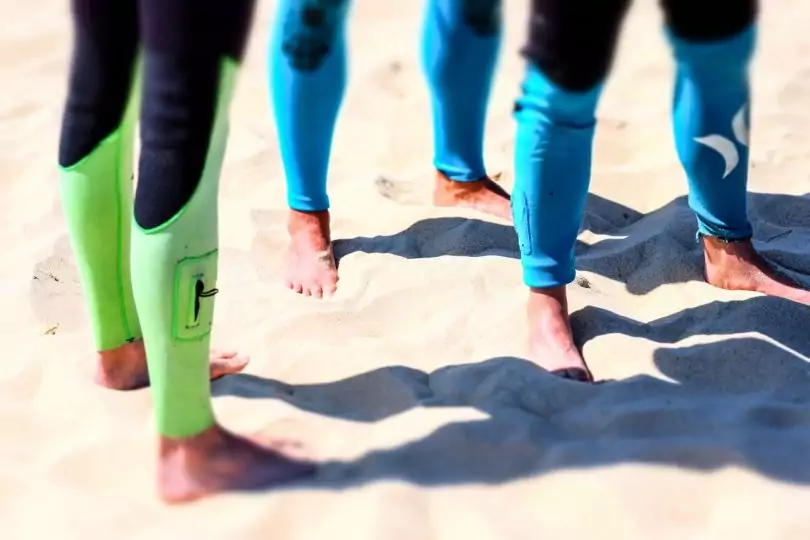
Tip #3
Next, you will feel your heel strike to the foot while pushing your toes off. This keeps your ankle at a good range of motion. You will also want to watch your knees at this point. Do not extend them too far while walking, as you can put unneeded stress on your knees, joints and lower extremities.
Keep a little bend in the knee and go at a comfortable pace like we said before. If you think you can get a faster walk in, try getting more steps in within a certain distance, rather than sprinting.

Tip #4
Keep your elbows bent and swing your arms as you walk. Elbows should be bent at your sides. During this time, keep your chin up and look forward. Do not clench your hands or swing your arms too wildly. You want to be loose and relaxed while walking so that your body does not take on stress that is not needed.
Remember, walking is healthy and soothing for your body. By clenching your fists or straightening your elbows, your form is not proper and you are causing stress on the body by doing so.

Tip #5
Do not lean while you are on a hill. This is not good for your posture or your back and spine. Stay straight while going up or down a hill and try to keep a good pace so you do not tire out. You could possibly use some flexibility training before you do go up or down a hill.
You can do some arm circles and flex your knees high before going out. You can also do some strength training so that you feel stronger when taking on hills.
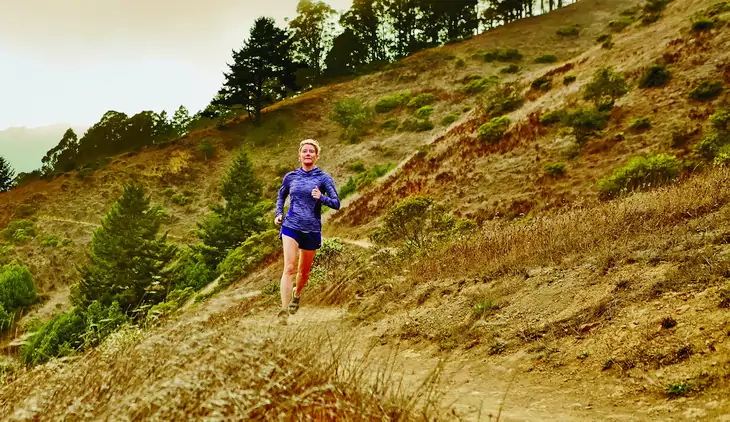
Tip #6
Always stretch before you go for a walk. Doing so will help the important parts of your body, like muscles, to prepare for use. Doing stretches, warms up your body for further exercise. After your walk, you will want to cool down, doing some stretches to relax your muscles and body. It is also important to stay hydrated on your walk, so do not forget your water bottle!
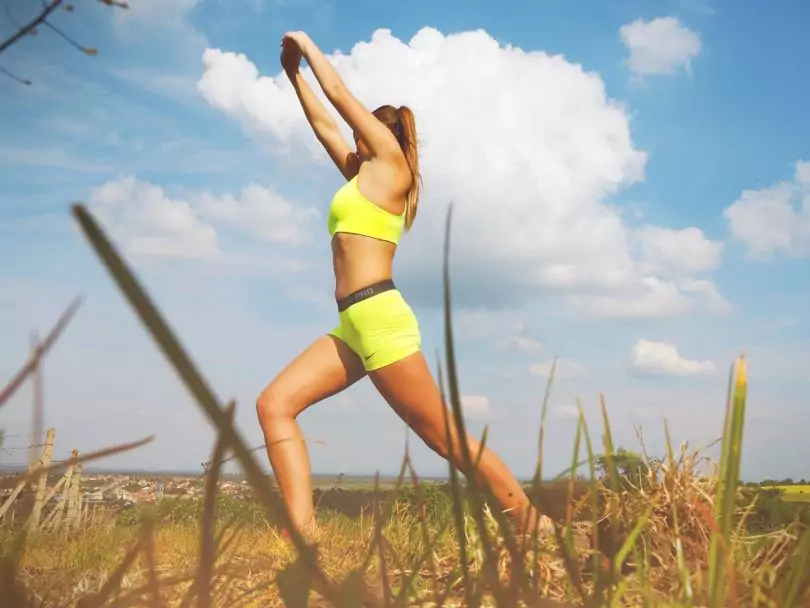
Tip #7
We talked earlier about developing a walking routine so that you can stay on a healthy course for your body. Making walking a habit is important for all parts of your body and doing so up to 30 minutes per day will show you significant changes in your body overall.
By staying idle, your body can get aches and pains from not moving around a lot. Remember, walking is free and you can do it anywhere, so why wait? Do it on the weekends, or after dinner, or while you are shopping at the mall. Do not be afraid to add in a 15 or 20 minute walk where you can!
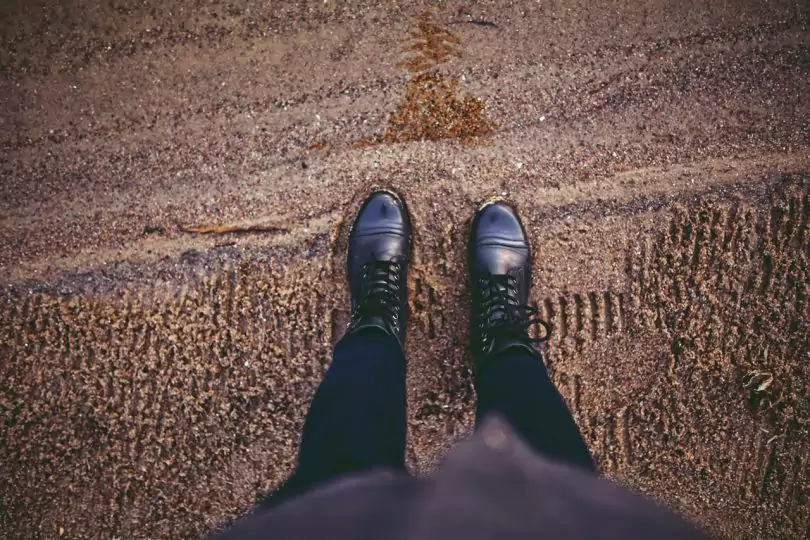
Tip #8
Lastly, you want to aim for 10,000 steps per day. Having a tracking device to help you count steps can help you achieve your fitness goal! The best bet is to walk wherever you can, whenever you can, so you can get in the most amount of steps on your journey to be healthy and active. For the best fitness trackers to help you count those steps and much more, see our article on this topic.
Even the American Cancer Society says that walking will vastly decrease your chances of cancer, heart disease and more! If you walk just 15 minutes per day, your blood sugar can regulate. If you walk a bit more, you just lowered your risk even more for breast cancer! So get out there and get healthy!

Concluding Thoughts on This Topic
Walking in the correct way is not only good for your feet, but is great for your body overall. With a walking routine, your body can cut down on the chances of cancer, heart disease and it has positive effects all around when it comes to your health.
With more and more people walking for exercise, it is important to know the proper form of walking, and to execute it without feeling pain later. Hopefully, these steps have helped you on your journey to better fitness!
If you’re a newbie in walking, our article on hiking basics for beginners will be an excellent read for you.

Do you walk for your health? How about backpacking and camping? What is your routine and how long does it take? Tell us all about your walking routine and how it helps you in the comments! We love hearing from our readers! Thanks for learning along with us!

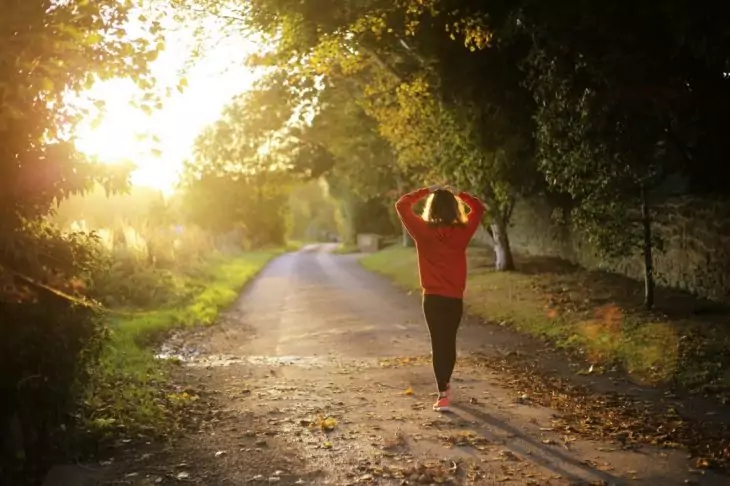



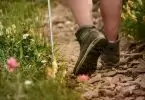


I laughed when I saw the title as it said how to walk, but now I learned that I have bad posture when walking. How do I fix my posture? How do I keep reminding myself?
It can be hard to remember but as soon as you do, straighten up and remember the tips you read about here. This will improve your posture, and you will soon do it automatically, it just takes practice.
You have mentioned most of the important things on how to walk. I learned many new things and thank you for that. And we should care the track we select walk. If not we will end with having some injuries.
Be careful out there!